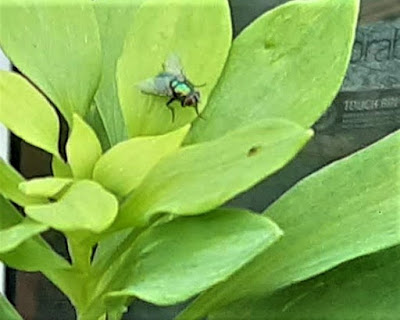 |
| Two ladybirds on the wildflowers |
A few years ago I started 'bee-friendly gardening' specifically with honey bees in mind but since then I have become aware that all insects are very much at risk. In fact it seems we are losing many of our insects at a frightening rate. These are the creatures that fertilise our flowers and fruit, break down our rubbish, create our good soil and make our planet a place we can live in. So encouraging them in the garden is a minor but essential way of making sure we don't lose them.
I like to think I now have more insects in more variety than I used to. Here are a few I have found this year.
1. Ladybirds: there are over 40 species of ladybird in this country. They gobble up aphids at a great rate and they are very pretty. I have found two of the 40. If you want to find out more about ladybirds (or other beetles) in the UK or would like to join in the recording scheme go to coleoptera.org.uk/home
 |
| 22 spot ladybird ( I think) |
 |
| I think this is a Harlequin ladybird (not native) |
2. Greenbottle flies: these are handsome shiny flies which gather in numbers if there's any dead organic tissue (such as a dead mouse) in the garden but which also like nectar and are important pollinators.
3. Various hoverflies: there are many many varieties of these, some small and black, others disguised as wasps.


4. Bees: particularly mason bees, leaf-cutter bees, large bumble bees and honey bees.
A honeybee on a sedum and a buff-tailed bumble bee on a lavatera
I also see various wood lice, spiders, solitary wasps, centipedes, millipedes, midges, lots of other flies, dragon flies, moths, butterflies, crane flies, ants. Well, it's a start.
If you'd like to find out more about insects - these carers of the earth, I really recommend Silent Earth by Dave Goulson (Jonathan Cape 2021). He is fascinatingly readable and extremely knowledgeable so you learn the most astonishing things about insects as well as the awful truths about why we are losing them and how it will affect us.





Comments
Post a Comment